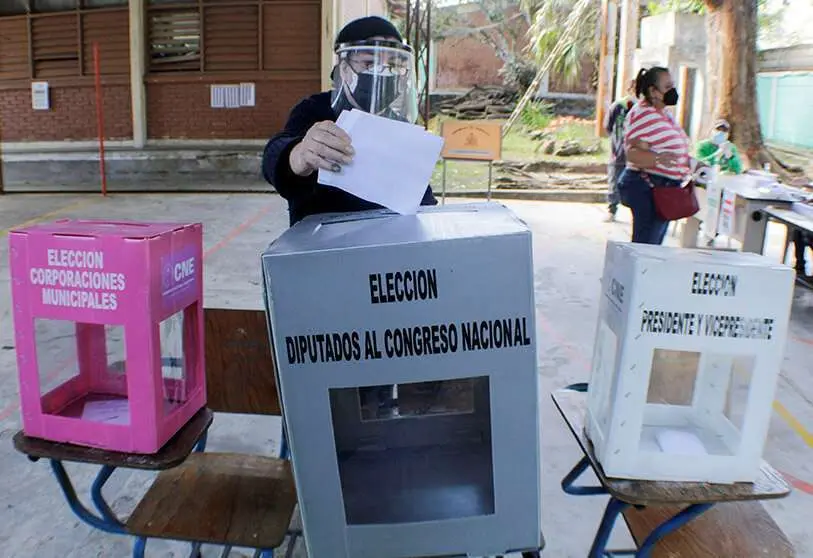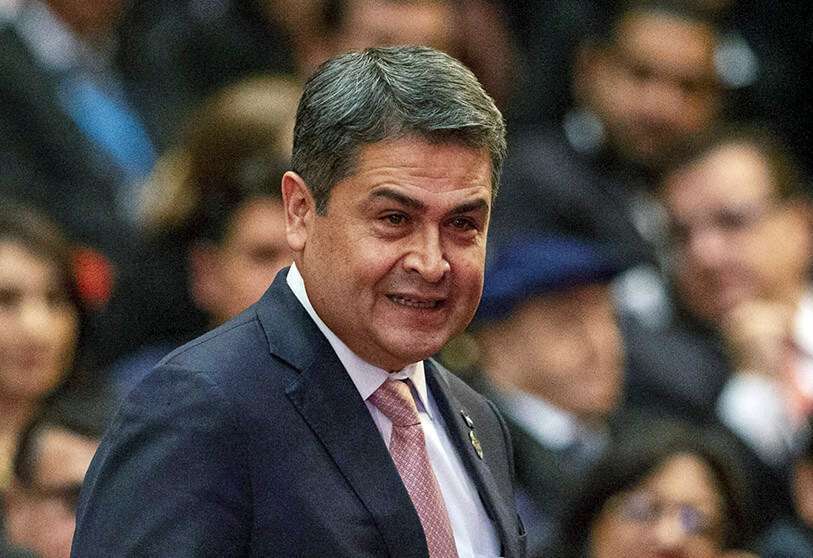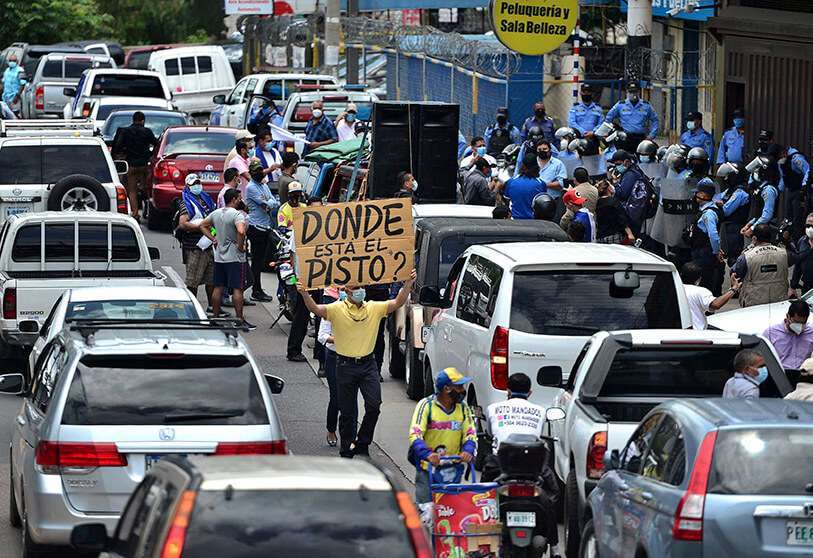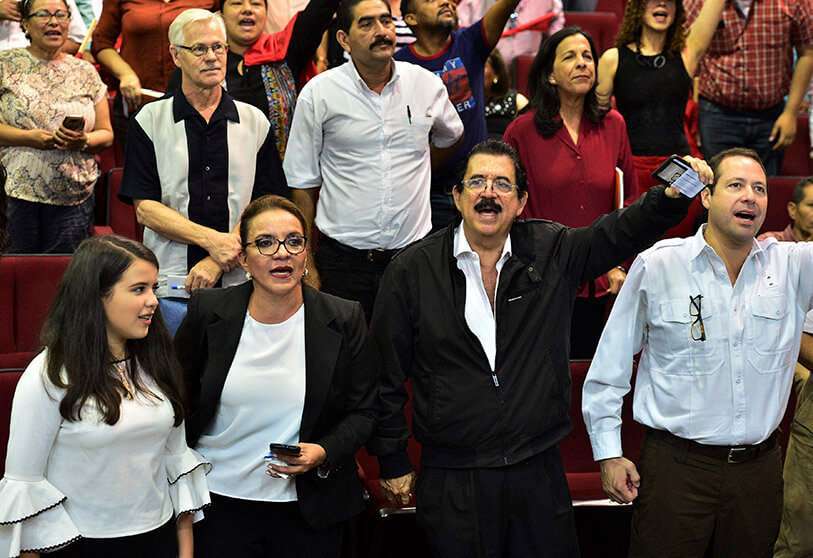Honduras begins primary election counting process

This Sunday, the primary elections of the National, Libre and Liberal parties were held to choose the three leaders of these political formations who will face each other in the general elections at the end of the year. Within this primary process, the names that will form the electoral lists to vote for the new 128-seat National Congress were also selected.
The National Electoral Council (CNE) has started counting the votes of the Honduran population 48 hours after the closing of the polling stations. The CNE, presided over by Ana Paola Hall, declared that "interference by political parties was prohibited in the process" and that the highest electoral authority is the only institution with exclusive competence to issue an official result.

The political crisis in which the Central American country is immersed begins with the news of President Juan Orlando Hernández, who has been accused by a New York prosecutor's office of receiving bribes from drug traffickers, specifically 1.5 million dollars from the Sinaloa Cartel, the purpose of which, according to the prosecutor's office, was to finance the current president's 2013 presidential campaign. Juan Orlando Hernández wrote on his twitter account: "How to believe false testimonies about me making deals with drug traffickers, when it is a proven fact that the Cachiros sought a deal with the USA because of the impossibility of the criminals to make a deal with me". This Thursday, the ex-leader of the 'Los Cachiros' cartel, Devis Leonel, revealed in his testimony during the trial against Geovanny Fuentes Ramírez, that his organisation allegedly paid 250,000 dollars to the president. The accused implicated vice-president Ricardo Álvarez and former president José Manuel Zelaya.

The results of these primary elections are still to be known and polls already give the three names of those who could be the favourites to lead their respective parties. Nasry Asfura of the National Party is emerging as the winner of his party, known as "Papi a la Orden", 62 years old, has been twice mayor of Tegucigalpa and is recognised for his management of public works. Asfura promises a change in the country's economy, his government proposals focus on the private sector, promising to help micro, small and medium enterprises. His challenger within the party is Mauricio Oliva, a two-time former president of Congress, who is the candidate closest to President Hernández and who could defend him in an eventual prosecution for the crimes for which he is accused by the US Attorney's Office in the northern United States. The National Party has been affected by former president Porfirio Lobo's corruption cases and fears that this could have repercussions in the November elections.

Within the Liberal Party, polls show Yani Rosenthal, who belongs to one of the richest families in Honduras and was sentenced to 29 months in prison for money laundering, as the winner. Rosenthal, 55, has an open rivalry with President Hernández, whom he accuses of the loss of his family wealth, "before I was accused I was upper class, now I have no house, no car, no bank accounts. I have nothing. So my position has changed. I'm not going to say I'm lower class, but it depends on the judgements: if I get my things back I will prosper and if I don't, I will have nothing. My future is uncertain," she told El Heraldo newspaper.
Xiomara Castro is emerging as the winner within the Libre Party. Wife of former president Juan Manuel Zelaya, she is leading the list of who could be the left's candidate for the presidential elections, having previously lost in 2013 to current president Juan Orlando Hernández. Her main proposal is a new constitution to socially transform the country, end migrant caravans heading south to the United States, guarantee food security for citizens, and reverse investment in arms spending and military equipment in order to reduce poverty. Castro, if elected, would become Honduras' first female president.
Latin America Coordinator: José Antonio Sierra








